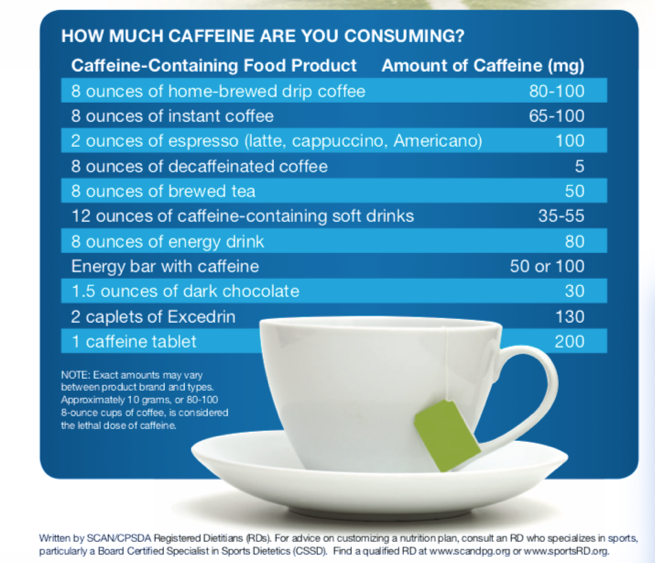Coffee, Caffeine pills or Pre Workout: What is the Best Form of Pre Workout Caffeine?
Caffeine is the world’s most widely consumed psychoactive drug, and also one of the most well-researched sport supplements.
What is Caffeine?
Caffeine is a central nervous system stimulant, providing both mental and physical stimulation.
Caffeine has these effects on the body:
Improves alertness & concentration
Reduces perception of fatigue (aka make work easier)
Increase time to exhaustion during exercise
May improve fat utilization
How Does Caffeine Affect Exercise Performance?
In the realm of sport nutrition, caffeine has been extensively researched for its benefits on sports performance. It is one of 5 main sport supplements supported to enhance exercise performance by the International Olympics Committee (IOC) Consensus 2018.
According to the consensus, benefits are seen with:
Endurance sports (long-distance running, swimming, cycling)
Sprint, strength and power sports (weightlifting, track and field, boxing, football and ice hockey, etc).
According to the updated IOC guidelines, the suggested dosage is 3-6mg/kg around 60 minutes before exercise, OR a smaller dose (<3mg/kg - about 200 mg) taken with a carb source before or during exercise for similar benefit.
However, there is a recommended amount PER day for total caffeine to prevent any negative health effects (more on that below!).
Where is Caffeine Found?
Coffee aside, we find caffeine naturally in cacao beans, tea leaves and kola nuts, and in many products like colas, energy drinks and energy bars.
The main forms used for that pre-workout boost include coffee, caffeine pills & pre-workout supplements.
Is one form better than another? I often get asked this, and although I do have a personal favorite (coffee), there are different benefits and drawbacks to each.
Comparing the Pros & Cons of Caffeine Sources
Let’s compare the different sources of caffeine, and considerations to help you decide which may be best for your needs and goals.
COFFEE
Drip, French press, espresso, etc. Name your style, coffee is a fan favourite!
PROS:
Convenience - easy to get your caffeine when on the go
Ingredient list – unlike the other options, coffee contains no added ingredients (unless you choose to add them – like cream and sugar)
Antioxidants – coffee beans are a rich source of antioxidants like polyphenols and other compounds that help prevent cell damage and reduce the risk of cardiovascular disease
CONS:
Gut irritant – coffee is very acidic and so it can irritate the digestive tract. This is not ideal for sports like running and cycling where a washroom is not always quick at hand. Coffee can also trigger acid reflux in those that suffer from heart burn.
Difficult to dose – there is huge variety in the caffeine content amongst different beans and blends, making it hard to know how much you are actually getting in comparison to the recommended amount.
Stains your teeth – no explanation needed!
CAFFEINE PILLS
Like having a cup of coffee, taking a caffeine pill can provide a temporary mental and physical boost. Caffeine pills are products that contain either natural extracted caffeine or synthetic caffeine. Caffeine pills average between 100 – 200mg per serving, the same as an average cup of coffee.
PROS:
Fluid free – for sports like running and cycling, fluid may need to be tapered off close to an event, simply to prevent the need for bathroom breaks. Caffeine pills can offer a good stimulant without the extra fluid that can trigger an early pit stop.
Less irritating to GI tract – caffeine pills aren’t as disruptive to the GI tract simply because they don’t contain acidic compounds
Easy to dose – making it simple to meet that recommendation by the IOC.
Quick – no drinking, or mixing required, simply pop a capsule about an hour pre-workout.
Cost – a package of approx. 200 pills ranges from $6-7, which is about $0.03 per pill. Compare this with your most economic version of coffee, a home-brew from a $10 bag would cost you about $0.40-0.50 per cup.
CONS:
Easy to overdose – it can be easier to overdo something taken in pill form, rather than cup after cup of coffee.
PRE-WORKOUT POWDERS / DRINKS
Pre-workout supplements contain a mix of vitamins, carbohydrates, caffeine, amino acids, and other ingredients that are intended to boost workout performance. Different brands and companies offer supplements with different formulas.
PROS:
Cost-effective – often combined with other supplements, this can make it easy to get multiple supplements in one beverage (ie. creatine, beta-alanine)
Easy to dose – each scoop has a regulated dose of caffeine making it easy to know how much you are getting
CONS:
Additives – sweeteners, colors and other ingredients are often added. Caution especially with the added sweeteners (like sucralose) which can cause GI distress in some
P.S. Looking for a low-FODMAP and plant-based protein powder that actually tastes GOOD and won’t make you bloat? My top option is Nuzest Clean Lean Protein!
Use code LEIGH15 at checkout to save 15% off your purchase of Nuzest Clean Lean Protein.
Additional Considerations With Caffeine
Here are some additional considerations when using caffeine to fuel your workouts and performance.
LOSES ITS BENEFIT OVER TIME
Keep in mind that caffeine tolerance can occur, so the performance enhancing effects become less pronounced with frequent consumption. You might want to consider cycling off before a competition.
MORE IS NOT BETTER
For the average adult, the most recent Health Canada guidelines advise us to keep our caffeine consumption under 400mg a day. This is just the upper limit however, so for those who are more sensitive to caffeine, you may need to limit it to less than this.
The effects of too much caffeine can include:
Poor sleep
Increased stress & cortisol levels
Anxiety & restlessness
It is important to consider where all your sources are coming from with this limit. Remember that energy drinks, coffee, other teas, and chocolate all contain caffeine too. Use this chart to see how your consumption of different caffeine containing products compares with this recommendation.
Do You Need to Use Caffeine?
If you find all of these options too stimulating, then it is totally fine to simply avoid these all options!
For an alternative, you could give green tea or matcha powder a try before your workout. It contains a lower amount of caffeine, but has a naturally occurring compound called L-theanine which is known to provide a calming effect to balance out the caffeine.
P.S. Want to fuel your activities, increase your energy, support your metabolism and feel GOOD around food?
Apply for my 1:1 fitness nutrition coaching program. Let’s get you on the road to vibrant health & fitness!
The Takeaway
Comparing all of the above, I think that coffee or caffeine pills come out on top as the simpler, cleaner sources of caffeine. That being said, choosing between one or the other may depend on personal preference. Some people dislike coffee and so a caffeine pill may be a better option. For others, they drink coffee any way so why not time it to their advantage.
Hope this clears up some confusion!
For more tips to boost fitness and training recovery, be sure to follow along with me on instagram at leighmerotto_rd.











